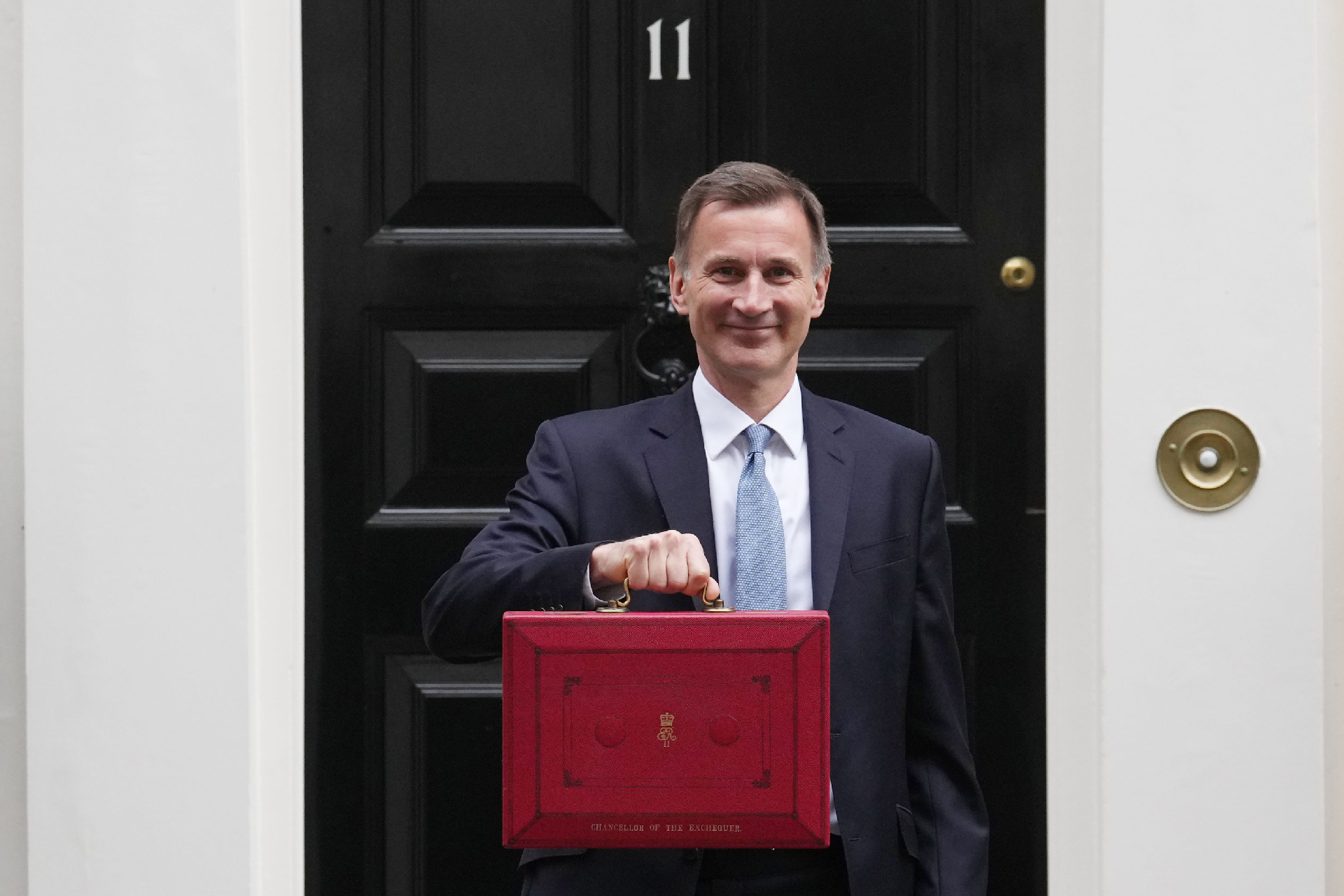Fuel duty freeze one of the only motoring policies in Spring budget 2023
Pothole repairs get £200m boost
Jeremy Hunt, Chancellor of the Exchequer, today announced his first budget and for motorists there was good news in the form of a further freeze on fuel duty until March 2024.
In a budget very light on motoring policies, Hunt said that duty of 52.95p per litre of fuel will remain.
That rate was cut from 57.95p in March 2022 by then-Chancellor Rishi Sunak, to help ease the cost-of-living crisis, as fuel prices spiralled and inflation took hold in the UK.
Motorists will be relieved to hear today’s news that this lower rate of duty will remain in place for a further 12 months.
RAC head of roads policy Nicholas Lyes welcomed the Government’s decision to keep the 5p fuel duty cut in place.
“The cut has given drivers some much-needed relief in what has been the most torrid year ever at the pumps, with price records being broken even after duty was cut,” he said. “Given the importance of driving for consumers and businesses, duty should be kept low to help fight inflation.”
Jack Cousens, the AA’s head of roads policy, was also pleased with the freeze. “Not only will this save drivers ‘heavy-duty’ pain at the pump, but will help keep the price of goods and services down as they are mainly transported by road,” he said. “Crippling road fuel costs are also a major driver of inflation.”
The SMMT (Society of Motor Manufacturers and Traders) was less impressed with the motoring announcements in Spring budget 2023, specifically with the lack of any new incentives to encourage car buyers to go electric.
Mike Hawes, SMMT chief executive, said: “There is little … that enables the UK to compete with the massive packages of support to power a green transition that are available elsewhere. Indeed, the announced fuel duty freeze contrasts with an absence of measures to boost uptake of zero emission vehicles, such as reducing VAT on public charging.
“We, therefore, look forward to additional policy announcements that support advanced manufacturing sectors, as the right conditions will enable the investment that drives growth across the country.”
More money to fill in potholes
The only other detail of interest to British motorists is an additional £200 million investment in the UK’s roads, to be used to repair potholes. That increases the total pothole repair fund to £700 million.
In 2020, the government pledged some £2.5bn over five years to councils for road maintenance, with £500m set aside every year for pothole repair and other remedial work on roads. However, the cost of filling in a pothole has increased substantially in the past two years – partially due to the escalating price of bitumen as Russia was previously the biggest supplier of the material before its invasion of Ukraine.
In February 2022, the Asphalt Industry Alliance (AIA) estimated that approximately 11.5m potholes would go unfilled last year and the situation has worsened since.
RAC head of roads policy Nicholas Lyes said: “While welcome, another £200m is unlikely to make a big difference to the overall quality of our dilapidated local roads.
“We need to significantly increase funding for local road maintenance and improvement so councils can resurface roads properly rather than patching them up and hoping for the best. Last year the Government spent £1.125bn on local roads in England which is in stark contrast to the £7bn that went into major roads from car tax, despite local roads covering so many more miles.”
Although it was hoped that an announcement would be made that would free up as much as £75 million from the Government’s Automotive Transformation Fund to go toward securing electric Mini production at Plant Oxford, this did not form part of the Spring budget.
Related articles
- After reading about how the Spring budget affects motorists, you might like to see what was in Rishi Sunak’s 2021 budget
- Here are 12 things you need to know about the 2030 ban on the sale of new petrol and diesel cars
- Feeling the squeeze? Here’s how to save money on — or even make money from — your car
Latest articles
- Dacia Duster 2024 review: Rugged, affordable SUV modernised with electrification and quite the glow up
- Audi A3 Sportback 2024 review: Softly, softly, catchy premium hatchback buyer
- New electric-only Mini Aceman fills gap between Mini Cooper hatch and Countryman SUV
- Tesla driver arrested on homicide charges after killing motorcyclist while using Autopilot
- Porsche Macan 2024 review: Sporty compact SUV goes electric, but is it still the class leader for handling?
- F1 2024 calendar and race reports: What time the next grand prix starts and what happened in the previous rounds
- Aston Martin DBX SUV gets the interior — and touchscreen — it always deserved
- Nissan unveils bold look for updated Qashqai, still made in UK
- British firm Bedeo launches new EV conversion kit for classic Defender














